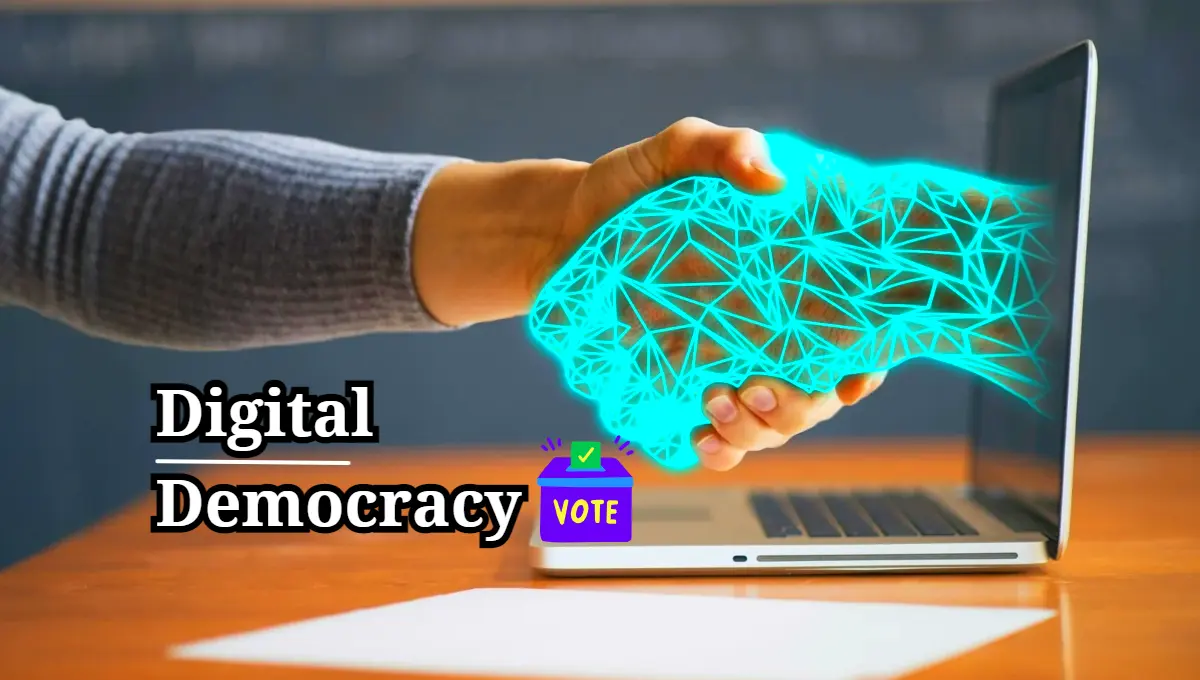Mubashir Nadeem
Digital democracy, the empowering use of digital technology such as social media and online platforms, serves to amplify the voices of people and foster participation in political and social processes. In our modern era, digital democracy is a beacon of hope, providing an alternative channel for expression. It allows individuals to share their thoughts, views, and opinions without the traditional barriers and limitations imposed by governments or state-controlled media.
The unrestricted sharing of ideas and information through digital democracy is a potential game-changer. It has the power to challenge the existing power structures, promote transparency in governance, and hold authorities accountable. It also allows marginalized or underrepresented groups to have a platform to voice their concerns and participate in public discourse, leading to a more inclusive and diverse decision-making process.
Furthermore, digital democracy has the ability to counter fake news and misinformation, providing access to accurate information and fostering critical thinking among citizens. By enabling widespread participation and engagement, digital democracy can contribute to greater civic awareness and activism, ultimately shaping the socio-political landscape in a more democratic and transparent manner.
Pl, subscribe to the YouTube channel of republlicpolicy.com
The concept of digital democracy, which amplifies the voices of people through digital technology, is still struggling to take root in many developing states of the Global South. These countries are often reluctant to embrace the reality of people’s voices due to historical, political, and social factors.
In the context of Pakistan, for example, the advent of digital technology, particularly social media, has provided an alternative platform for expression, circumventing the formal channels that are often subject to state control. This has led to a clash between the populace and the authorities, as the state attempts to maintain dominance over traditional media while facing a growing tide of expression and activism on social platforms.
The emergence of digital democracy, characterized by the unrestricted sharing of thoughts, views, and opinions, has introduced a new dynamic to the socio-political landscape. This shift has prompted resistance from certain states, including Pakistan, for several reasons.
Firstly, the entrenched despotic patterns inherited from the Cold War era have fostered a reluctance to embrace the breaking of silence and the amplification of individual voices, which are essential components of digital democracy. Secondly, the prevalence of rigged elections and controlled representative systems in developing states has led to resistance against the transparent nature of digital democracy.
Furthermore, the loss of control and monopolistic power by governmental authorities presents a significant challenge to the traditional power structures, leading to apprehension and resistance. Additionally, the undermining of fake news and contrived historical narratives by digital democracy threatens the established mechanisms of misinformation and control favored by certain states.
While the resistance to digital democracy in developing states like Pakistan is evident, the inherent nature of the digital age suggests that this transformation is not just a possibility, but an inevitability. The influence of digital democracy will continue to pose a challenge to traditional power structures and authoritarian control, ultimately reshaping the dynamics of governance and public expression.
















